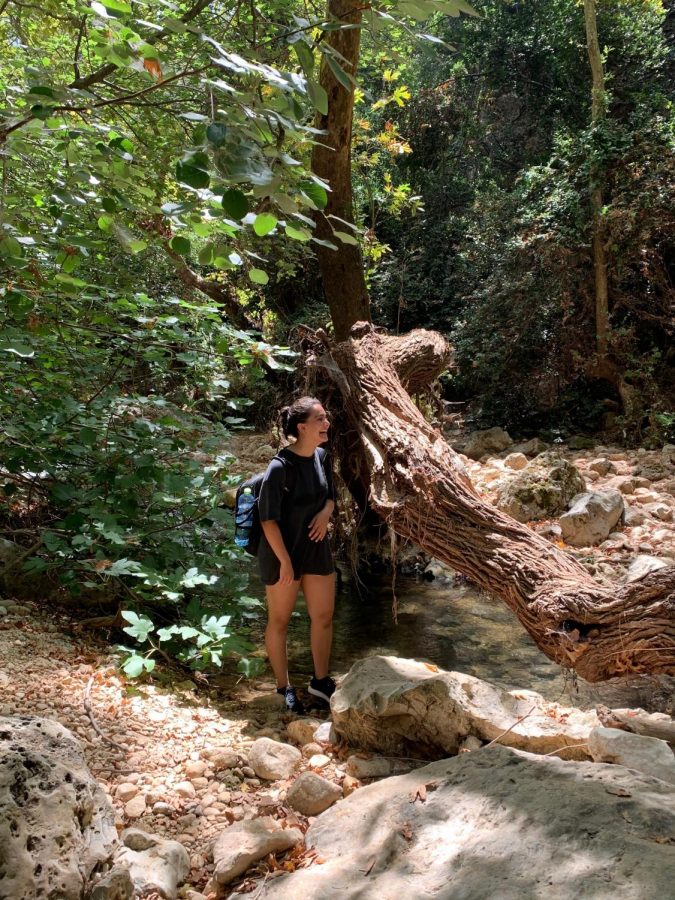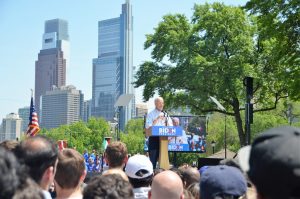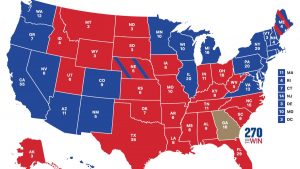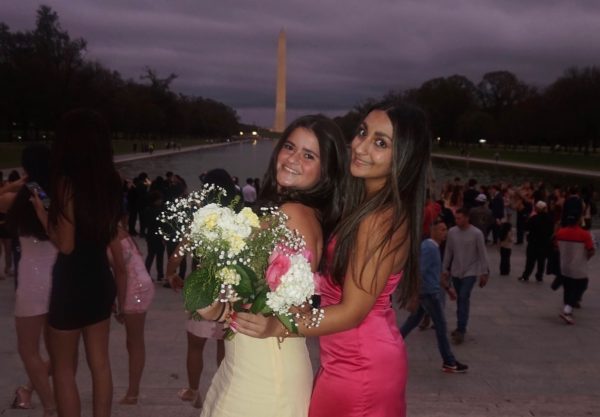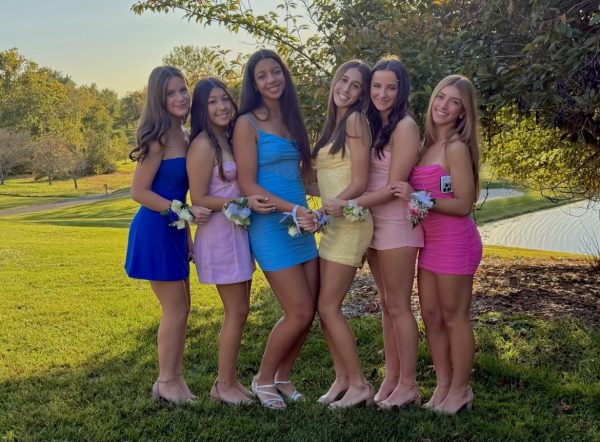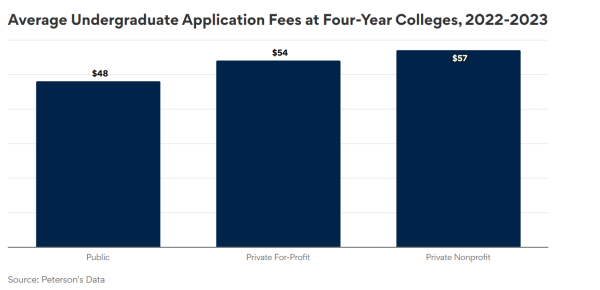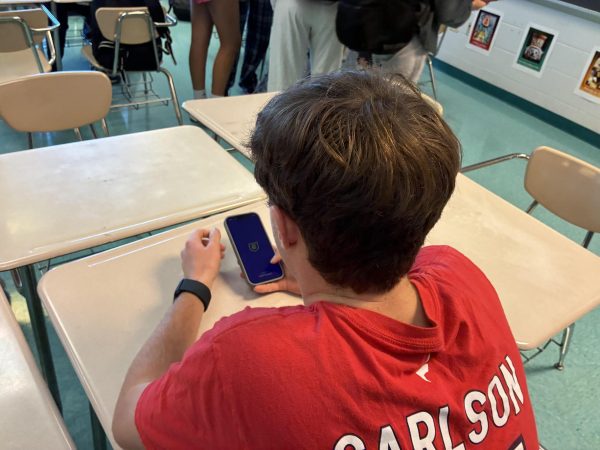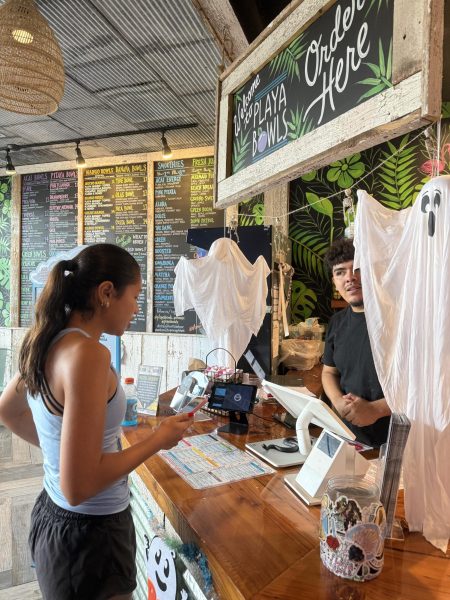Students across the world share opinions on past election
Maya Gorev, a Cold Spring Elementary student who moved to Israel before middle school, on Aug. 10 on a trip in Northern Israel, just months before the 2020 election.
Most Patriots have lived in Rockville since their earliest memories and may have traveled to other countries but have not experienced a true culture shock, which puts them in a bubble. We watched the most recent election unfold, in an affluent area that is mostly blue. It is time to take a step back and see how students across the country view the election.
Belgium
Belgium’s prime minister is Sophie Wilmes, a 45-year-old Belgium native. The prime minister is appointed in Belgium. Citizens of Belgium can only vote for legislative elections, like the parliament, and it is mandatory that every citizen above 18 votes. These elections are held every five years. The monarch of Belgium is King Phillipe. They do not have a president like the United States.
Nick Clifton is a senior at the International School of Brussels (ISB). He said, “Politics isn’t as widely discussed as a topic in Belgium compared to the US, and partisanship is less explicit.”
People all over Belgium closely followed the US election. The majority of students in America do not pay close attention to elections in other countries. The idea of whether we are too confined in our bubbles to pay attention to other countries’ elections or that the elections simply do not affect us is debated. “I follow[ed] the US election, many people in Belgium did. I didn’t think too much of it initially but it got more interesting as time went on with the president’s refusal to concede,” Clifton said.
Clifton had a similar view that students here have about the election in the sense that there was drama, confusion and anger that made it difficult not to pay attention to. “I thought that the election was interesting because of all the social and political turmoil over these past few months but more particularly, the legal justifications for certain actions the president took during the election,” Clifton said.
Israel
Israel’s Prime Minister is Benjamin Netanyahu. Elections in Israel are like they are in the U.S., every four years. Due to Israeli issues, they have had three elections in the past year and a half. Similar to here as well, every citizen over the age of 18 can vote. However, people do not need to register, they just go to the ballot and enter their vote. There is nothing like the electoral college in Israel. Maya Gorev is in 12th grade at Hakfar Hayarok, (the literal translation means “Green Village”), a school along the northern border of Tel Aviv. “I know how the U.S Electoral College works. I don’t agree with the system. It’s very complicated and gives less meaning and influence to every individual vote,” Gorev said.
In regards to the most recent election, in our bubble, the results seem to be the sight of a positive future for America, but what about Israel? “Overall, I’m just glad Biden won. [However] there is some fear here in Israel over the fact that he won because Trump helped Israel. There is fear that Biden will collaborate with or help Iran as well as some other countries, which could have major life and death (terror) consequences for us here. Since I don’t know enough about what those consequences can be and it’s too early to know, I’m very happy Biden won,” Gorev said.
Idan Fruman is also a student in Israel. He goes to Alumim Middle School. “I’ve followed the recent elections and watched it live on CNN to see who’s in the lead. When I saw the counting of the ballots I thought it took too long and was very tense till Biden got 270 electors. I think that the electoral college system is a relic of the old world and it should be changed to the same system as other democracies. For example, this system was responsible for Trump’s win in the 2016 elections, even though he received about three million votes less than Hillary Clinton,” Fruman said.
He also commented on Israel’s perspective of the election. “There was a lot of discussion in Israel whether the results were good for our country. Personally, I have a good feeling about the next four years,” Fruman said.
Venezuela
Venezuela has elections similar to the United States, in the sense that they vote every four years at a minimum age of 18. Venezuela’s president is 58-year-old dictator, Nicolas Maduro. Maduro is part of the United Socialist Party of Venezuela. However, according to the U.S Department of State, “In 2019, the National Assembly of Venezuela invoked the Venezuelan constitution and declared that Maduro had usurped power and was not the president of Venezuela. Since 2019, more than 50 countries, including the United States, have refused to recognize Maduro as Venezuela’s head of state.”
Alfredo Herrera is a 10th grader at Escuela Campo Alegra (ECA) in Caracas, Venezuela. He followed the past election, however, he has more negative views on the election. A lack of full understanding of our democracy may be the reason. “I followed the election and I think it was a bad election. I think Trump should [have won] because I come from a country where socialism rules and it ruined the country,” Herrera said.
United States
Of course, there are more perspectives about the past election in countries not mentioned in this article, opinions are formed from the knowledge of their country’s connection to the United States and from personal experiences and preferences. It is important to try to look outside of the bubble we live in. Acknowledging other perspectives and becoming aware of them allows for more peaceful conversations and understanding of the world. “I feel that it’s extremely important to understand and more importantly listen to others’ perspectives. By listening to another individual’s point of view, whether it be political or not, you can challenge their belief by pointing out something flawed in their reasoning. When we’re focused on being politically right all the time, we often become inconsiderate of the opinions of others, which can be detrimental to democracy and society overall. Thus, it’s important to acknowledge that listening to others’ beliefs, especially those that are contrary to your own beliefs, is difficult, however being open-minded is something that must be more wide-spread in society,” senior Emily De Olivera said.
Your donation will support the student journalists of Thomas S. Wootton High School. Your contribution will allow us to purchase equipment and cover our annual website hosting costs.
Maya Erd is a 2021 graduate.


